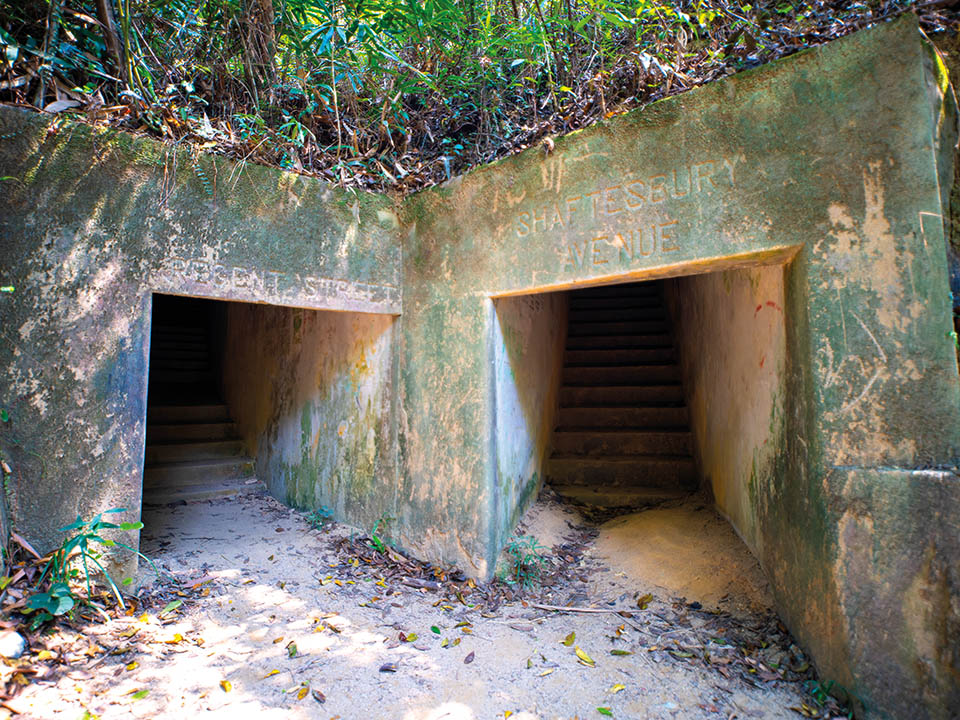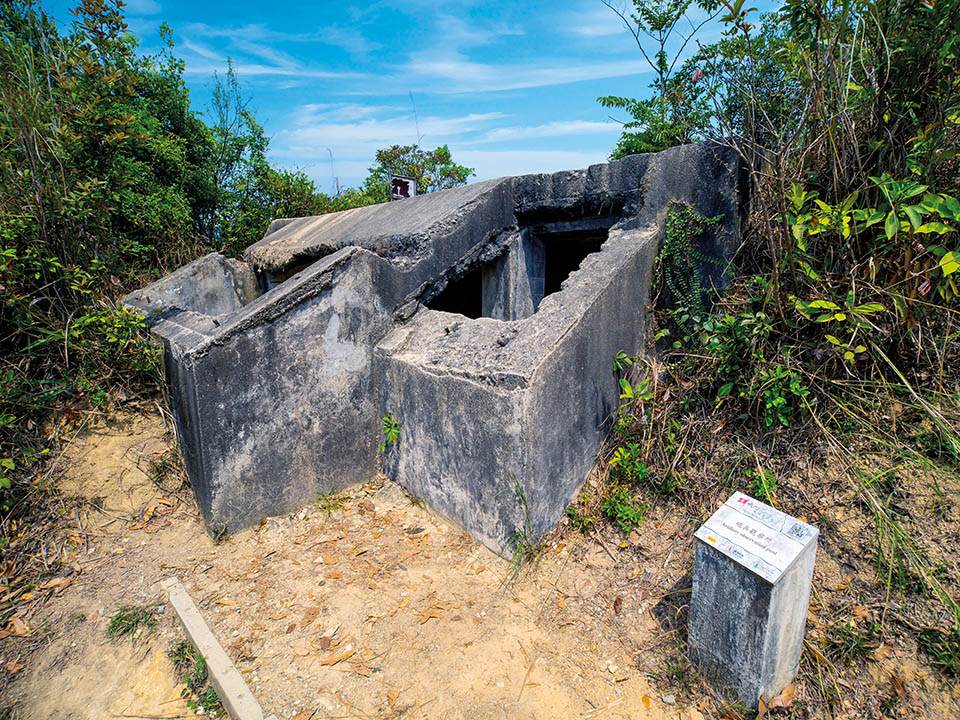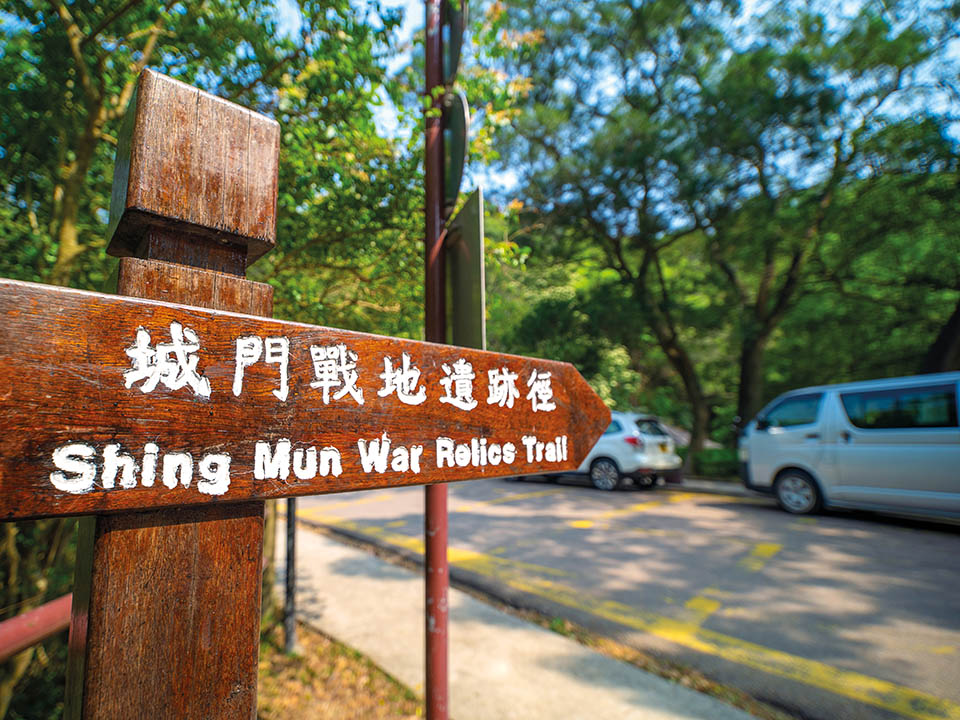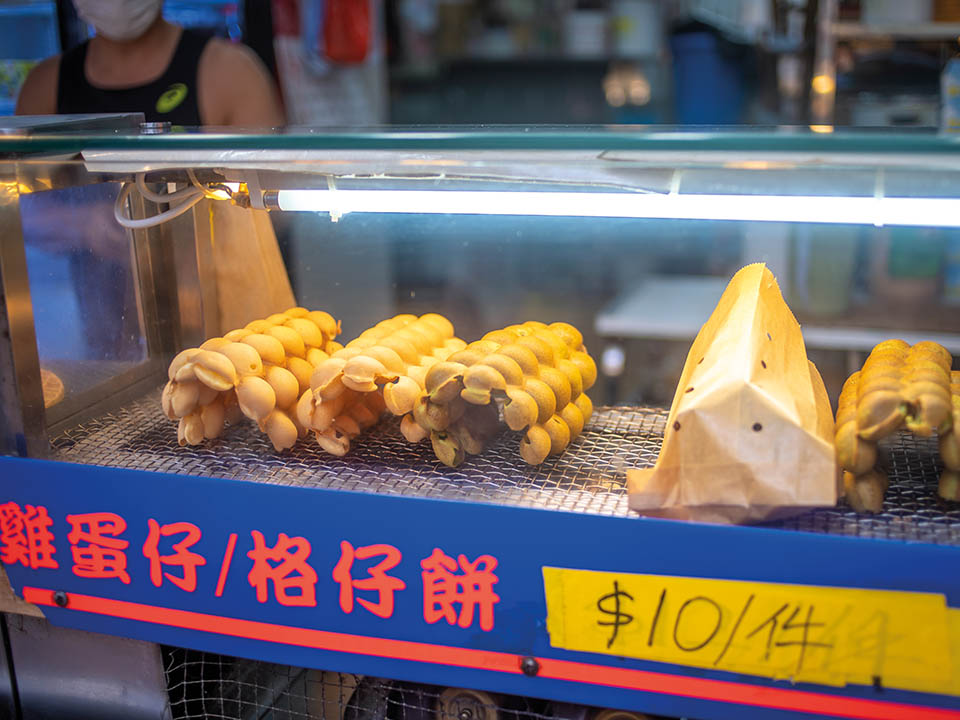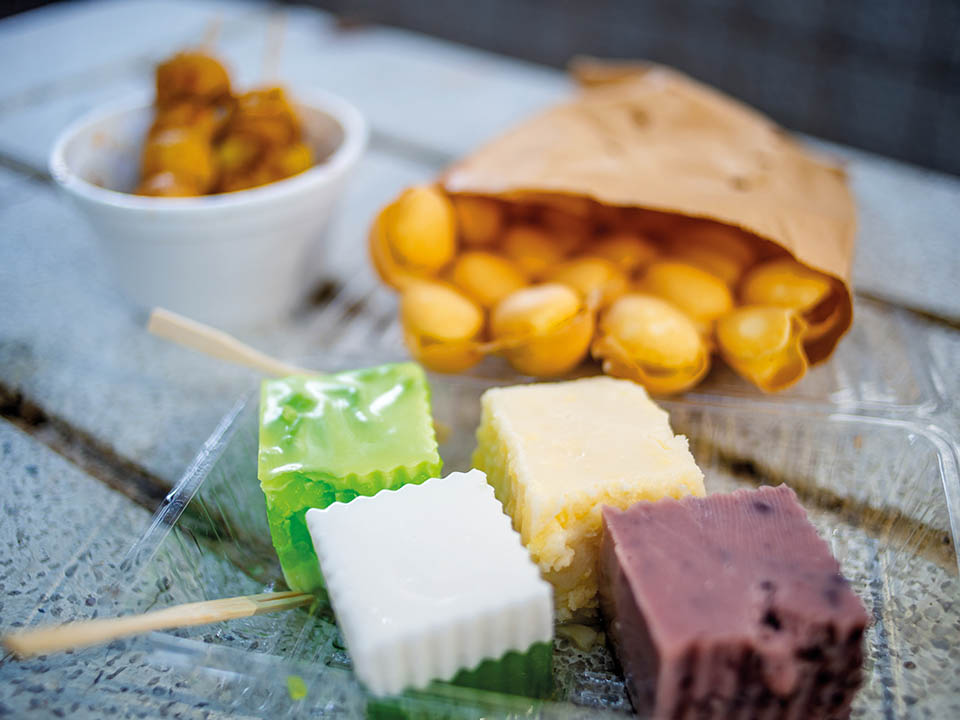
Written by South China Morning Post
A popular hiking destination for families nestled between Tai Mo Shan and Kam Shan Country Parks, Shing Mun Reservoir is the place to go to enhance your picture-perfect memories. The reservoir area is a rich habitat for a variety of wildlife such as butterflies, monkeys, cattle and even wild pigs. Walk along the reservoir roads and trails to immerse yourself in this idyllic setting surrounded by nature, and stop by the paperbark trees for some Instagram-worthy photos. If you are more interested in history, head to the War Relics Trail to check out the remains of Second World War hillside defences.
-
Pineapple Dam Nature Trail
The Pineapple Dam Nature Trail is an insightful and eye-opening start to a great day out around Shing Mun Reservoir. Head up the stairs from the minibus stop, and you’ll begin a short family-friendly stroll through local flora and fauna. Within the country park you could easily see groups of monkeys, which tend to hang around the picnic areas looking for food. This area was once home to many Hakkas of the Cheung family who settled here and established several villages to grow rice and pineapples — hence the name of the dam.
 While it’s tempting to offer these cute animals food, feeding monkeys is prohibited in specific places in Hong Kong under the Wild Animals Protection Ordinance. Feeding affects a monkey's natural behaviour and causes problems by promoting the rapid, unnatural growth of the monkey population. Normally, monkeys won’t harass you if you don’t offer them food. When there are monkeys nearby, please remain calm and avoid holding food or plastic bags in your hand. Don’t stare at monkeys as staring provokes them.
Get me there
While it’s tempting to offer these cute animals food, feeding monkeys is prohibited in specific places in Hong Kong under the Wild Animals Protection Ordinance. Feeding affects a monkey's natural behaviour and causes problems by promoting the rapid, unnatural growth of the monkey population. Normally, monkeys won’t harass you if you don’t offer them food. When there are monkeys nearby, please remain calm and avoid holding food or plastic bags in your hand. Don’t stare at monkeys as staring provokes them.
Get me there
-
Paperbark Tree Corridor
This picturesque section along the main reservoir road is lined with white-coloured paperbark trees, which get their name from their peeling bark and can grow up to 18 metres tall. Savour the soft sounds of birdsong and gently rushing water as you gaze at the row of paperbark trees that now line your path, which is the perfect spot for photos.
Get me there
-
Paperbark Tree Grove
Step off the main path to your right, and you’ll be in an oasis of wood that is commonly known as the paperbark tree grove. This is perhaps the most popular spot in Shing Mun Reservoir for taking photos and videos, especially wedding photos. Take a breather, a photograph or two — and admire your surroundings. Whether you choose to enjoy the lovely view from beneath the canopy of branches, or simply close your eyes and imagine yourself away from everything, don’t miss this tranquil natural habitat.
Get me there
-
Viewing Point
At the crest of the hill, take a short two-minute detour at the crossroads, and you’ll encounter a stunning view of the reservoir. At first, you’re greeted by a panoramic mountain skyline, which soon opens up as you gradually approach a pagoda. From this viewpoint, the Shing Mun Reservoir can be seen in full, with the contrasting skyline of Kwai Chung behind it.
Get me there
-
Main Dam
The Main Dam (also known as Gorge Dam) is not only key to supplying fresh water to Kowloon and Hong Kong Island, but also the lifeblood of the local flora and fauna that flourish along the banks of the reservoir. From this point, you can see how the soft flowing lines of nature contrast nicely with the clean symmetry of the dam’s structure to create an Instagram-worthy scene. What’s more, from the dam you can also see both Hong Kong’s iconic mountain, Lion Rock, and the city’s highest peak, Tai Mo Shan.
Get me there
-
War Relics Trail
The Shing Mun War Relics Trail allows you to walk back in time. Take the short, undemanding climb up the steps leading from the barbecue pits, and you’ll come to the Shing Mun Redoubt — part of a 12-acre citadel straddling the Kwai Tsing and Sha Tin districts with inspired trench names such as Shaftesbury Avenue, to aid the soldiers’ navigation. Built to defend against attacks from the north, the 250-metre trail was an important stronghold of the Gin Drinker’s Line with a series of defence installations such as trenches, military marker stones and pillboxes built before the Second World War (from around 1937 to 1938). Before visiting the War Relics Trail, please make sure you have enough water. There are vending machines and a water filling station available next to the toilet in the barbecue site right before you head up to the trail.
Get me there
-
Dining Option
Lo Tak Court, Tsuen Wan
After a full day exploring nature and history, enjoy a welcome respite at Lo Tak Court in Tsuen Wan. Among the snack stalls and cha chaan tengs (traditional local cafes) in this urban courtyard, you’ll also find several exciting street food options, such as takeaway dim sum and Hong Kong-style fish balls and egg waffles.
Get me there

Transport
Getting to Pineapple Dam Nature Trail
From MTR Tsuen Wan Station Exit B1, walk across the bridge over Castle Peak Road and through to Shiu Wo Street, where you’ll find minibus 82. This will take you directly to the start of the Shing Mun Reservoir Walk.
Leaving from Shing Mun War Relics Trail
After returning to the kiosk at the start of the Shing Mun Reservoir Walk, take minibus 82 back to Tsuen Wan for some food and transport home.
More Routes

Written by South China Morning Post
A popular hiking destination for families nestled between Tai Mo Shan and Kam Shan Country Parks, Shing Mun Reservoir is the place to go to enhance your picture-perfect memories. The reservoir area is a rich habitat for a variety of wildlife such as butterflies, monkeys, cattle and even wild pigs. Walk along the reservoir roads and trails to immerse yourself in this idyllic setting surrounded by nature, and stop by the paperbark trees for some Instagram-worthy photos. If you are more interested in history, head to the War Relics Trail to check out the remains of Second World War hillside defences.

Transport
Getting to Pineapple Dam Nature Trail
From MTR Tsuen Wan Station Exit B1, walk across the bridge over Castle Peak Road and through to Shiu Wo Street, where you’ll find minibus 82. This will take you directly to the start of the Shing Mun Reservoir Walk.
Leaving from Shing Mun War Relics Trail
After returning to the kiosk at the start of the Shing Mun Reservoir Walk, take minibus 82 back to Tsuen Wan for some food and transport home.








 ASMR in Shing Mun Reservoir
ASMR in Shing Mun Reservoir



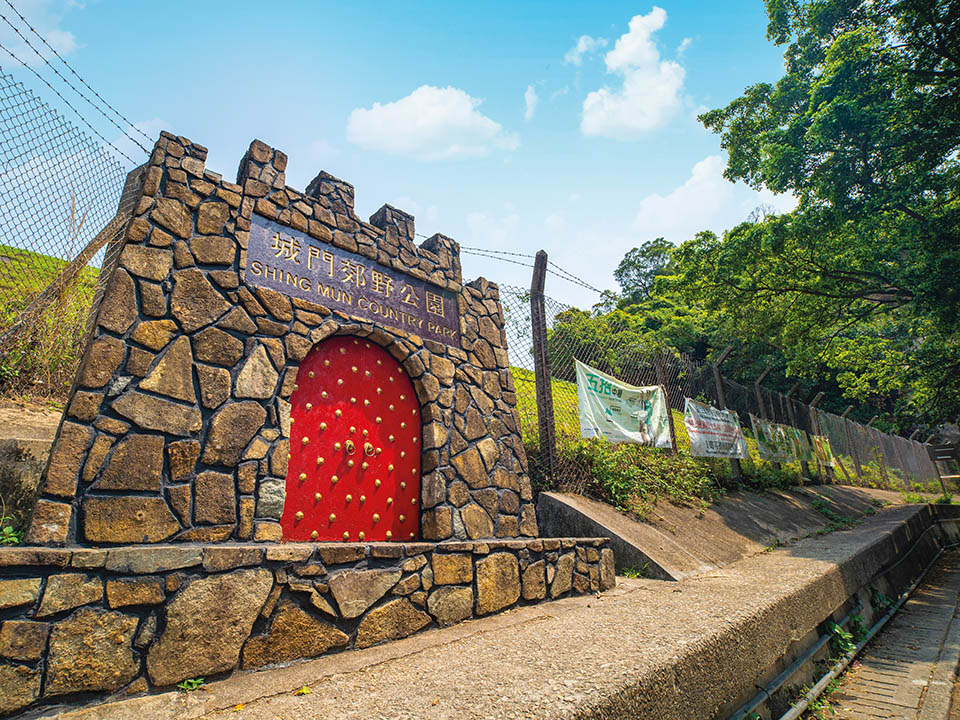
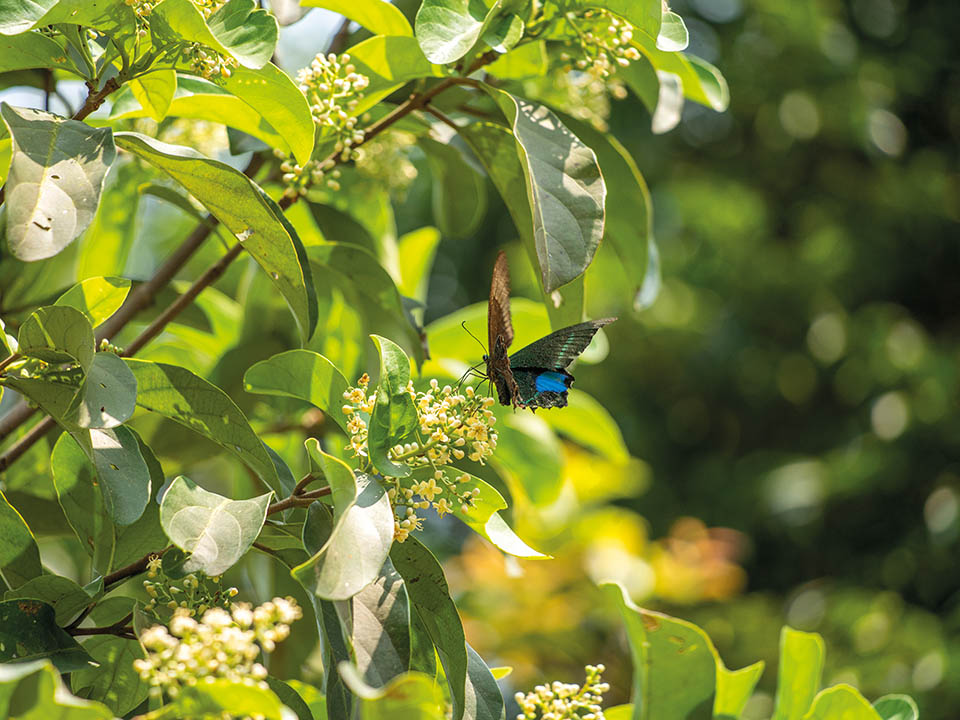
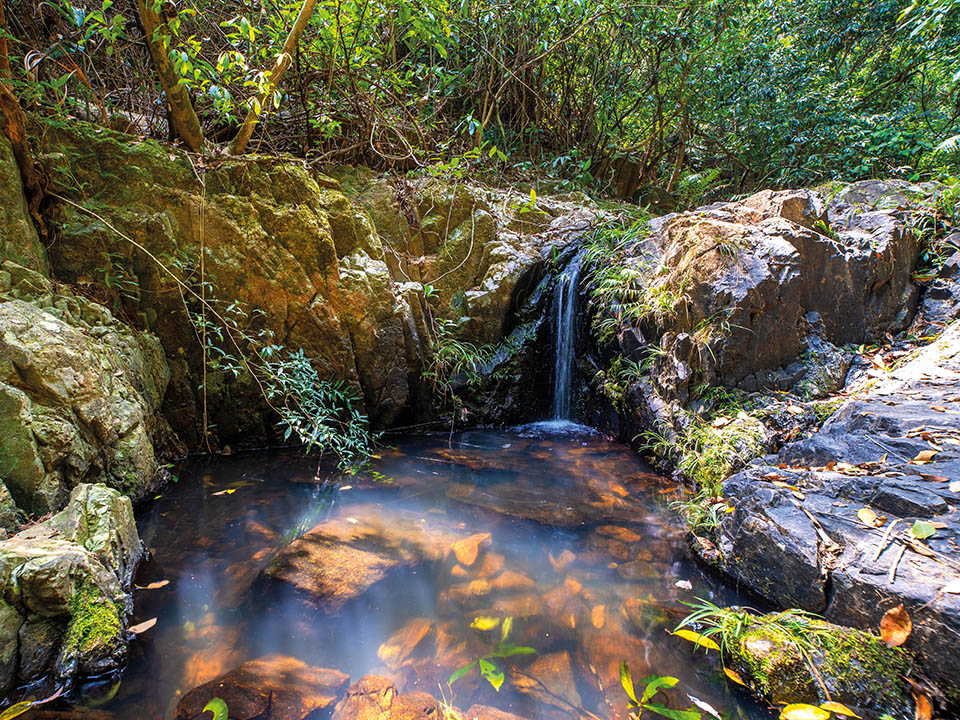
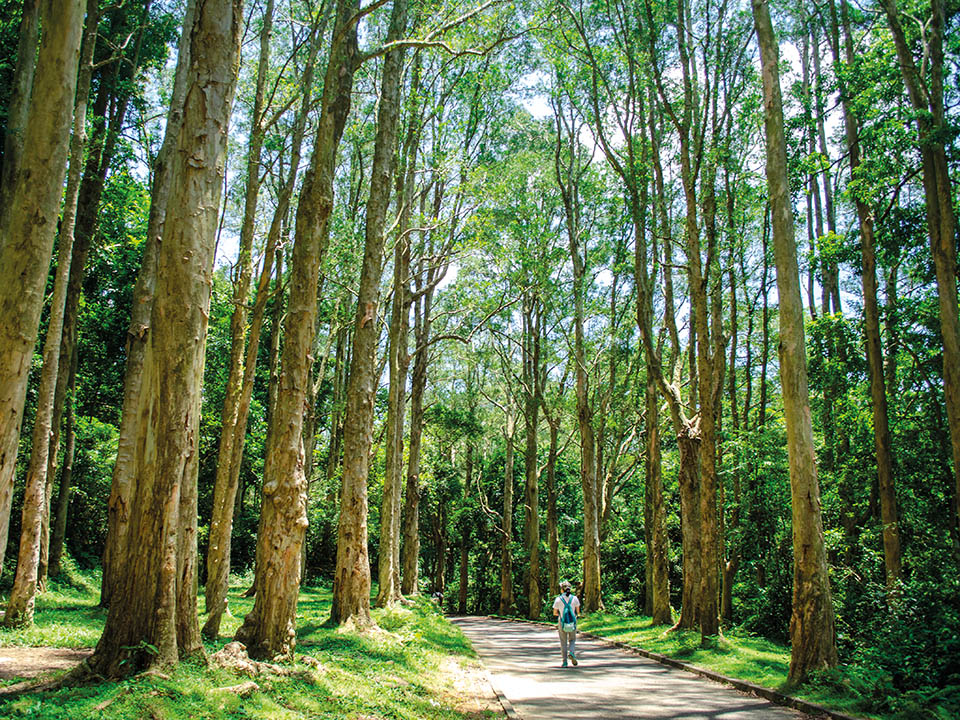
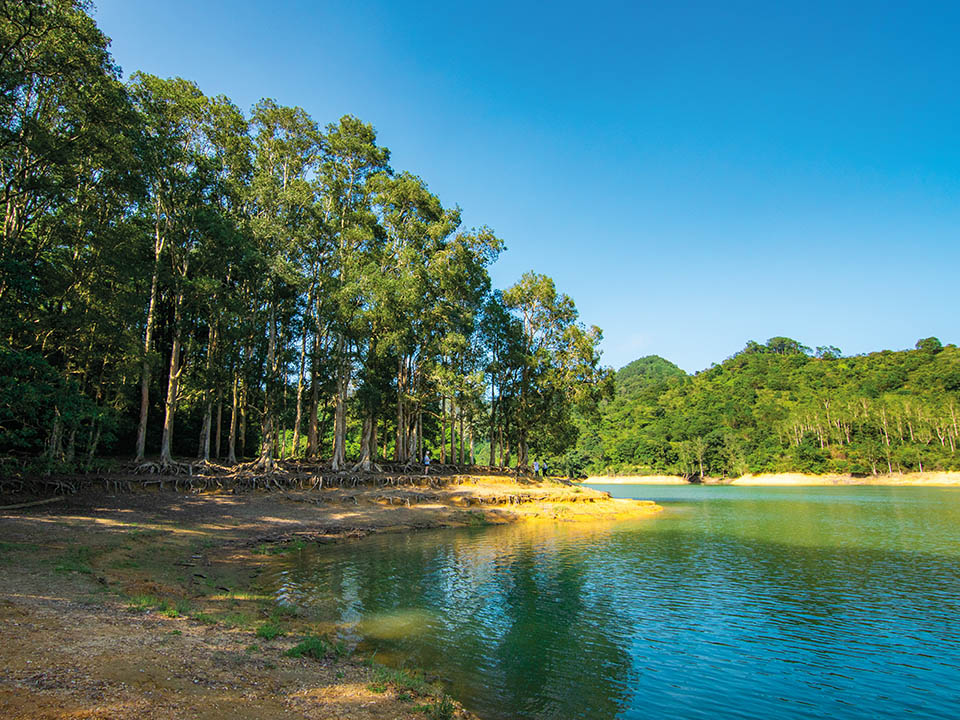
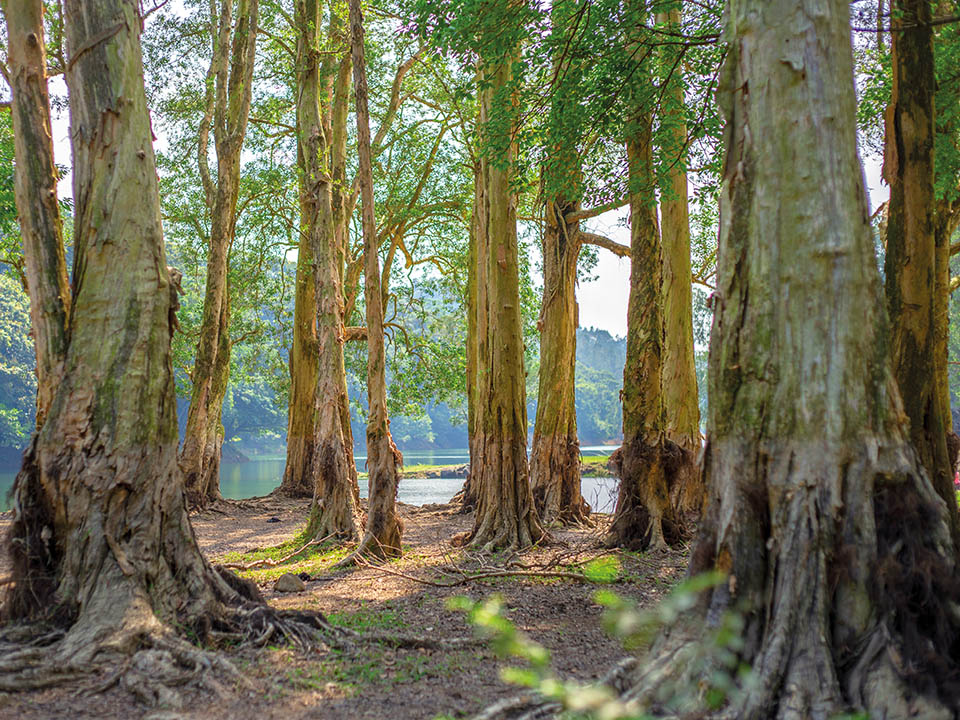
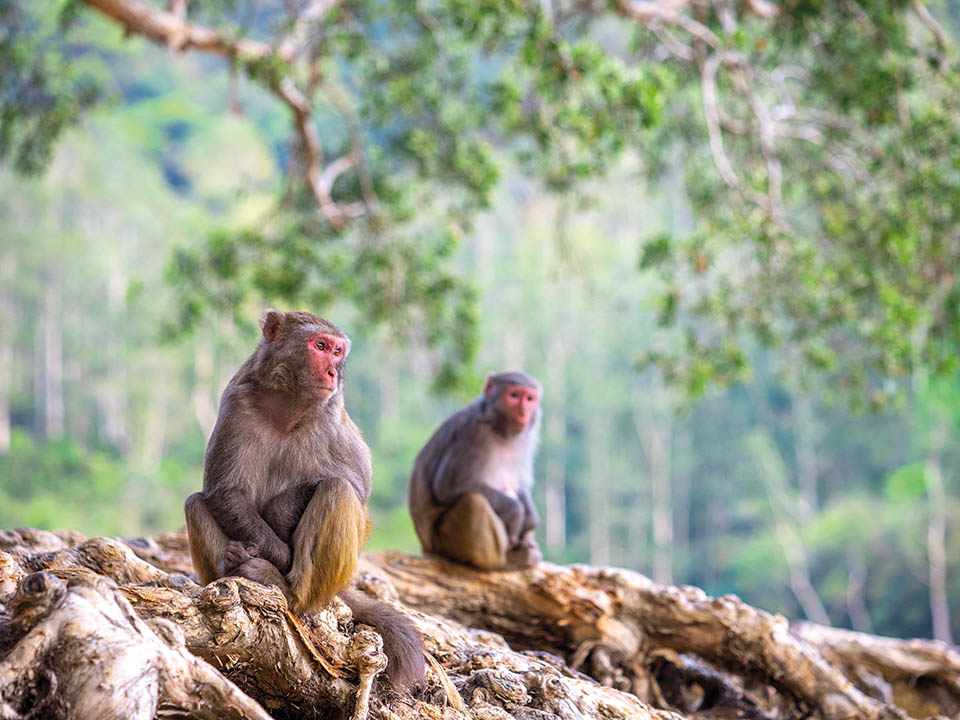
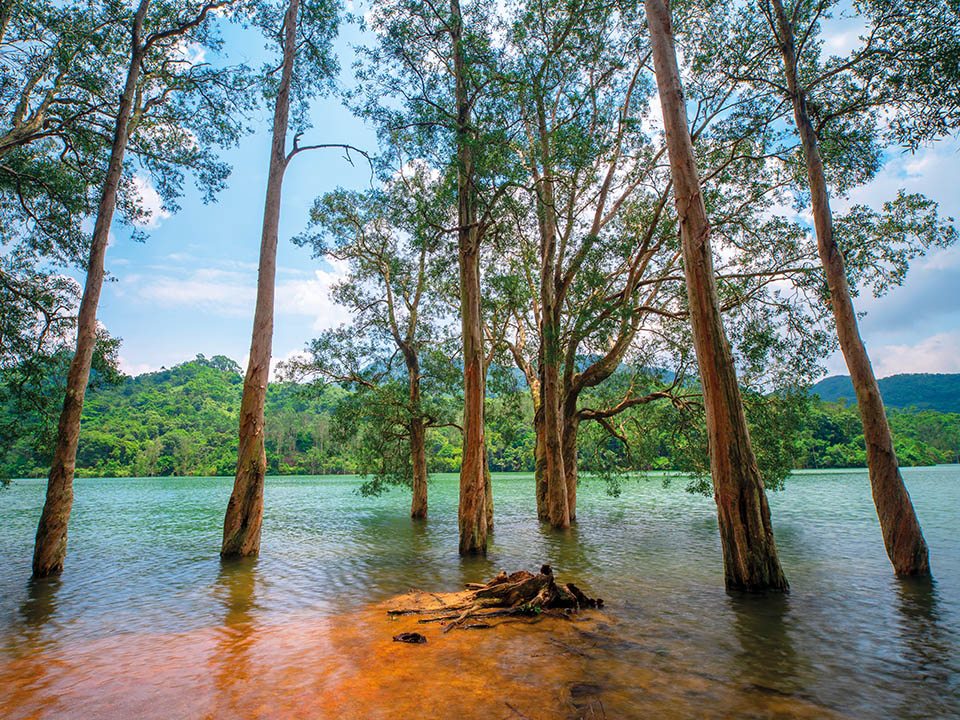
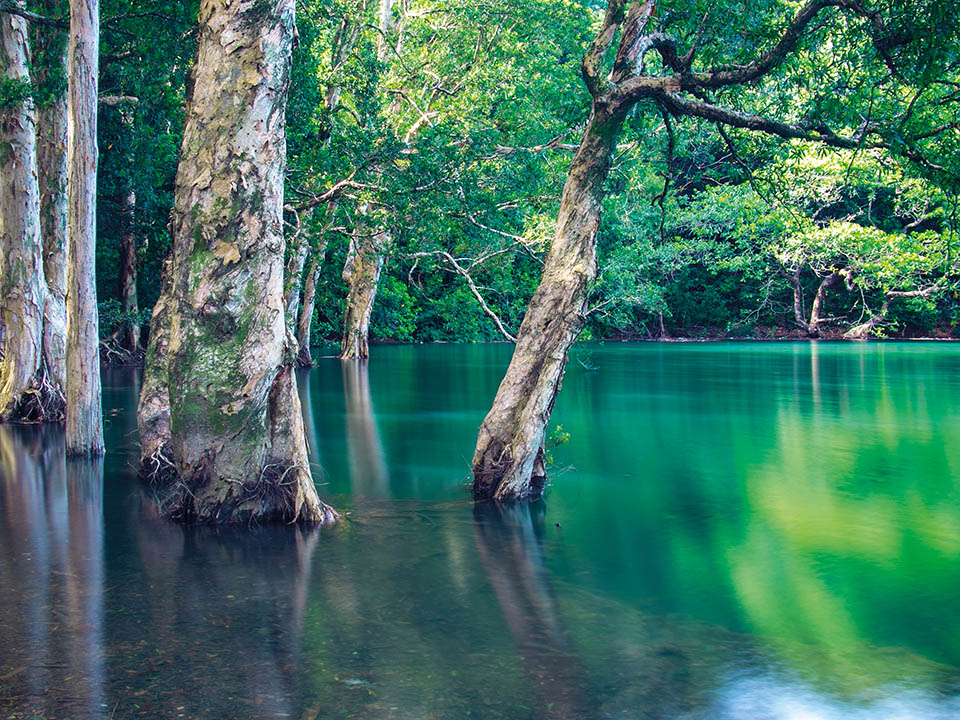
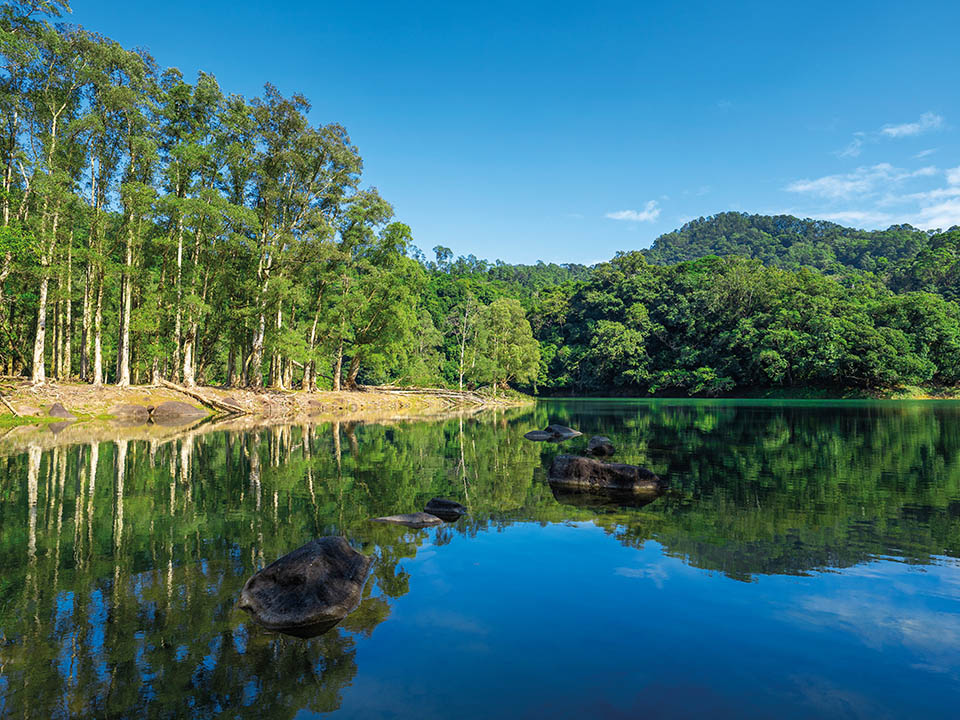
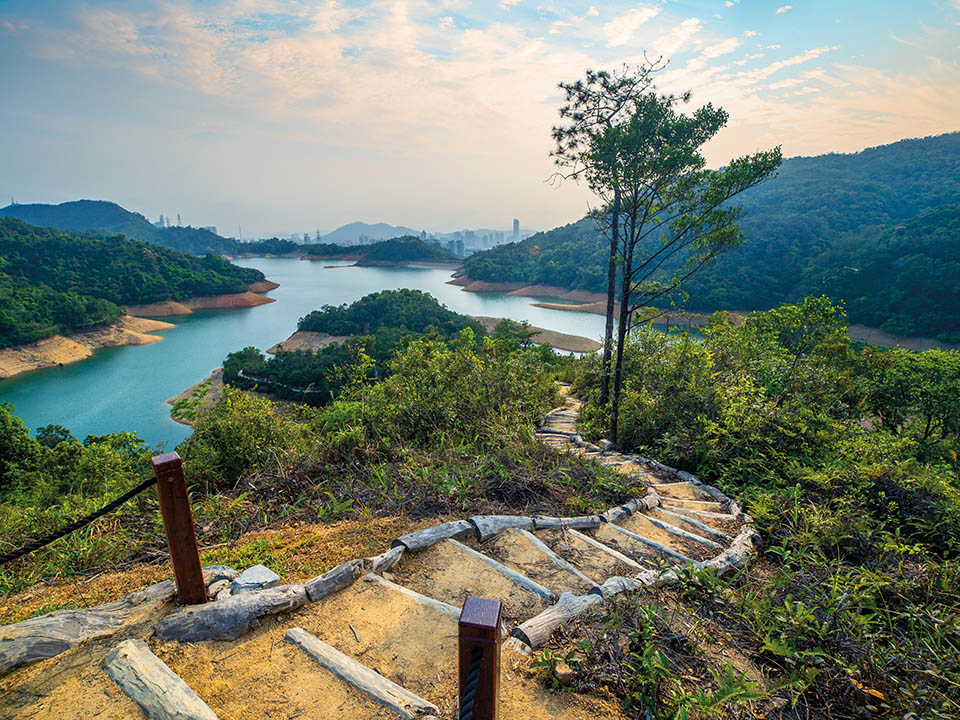

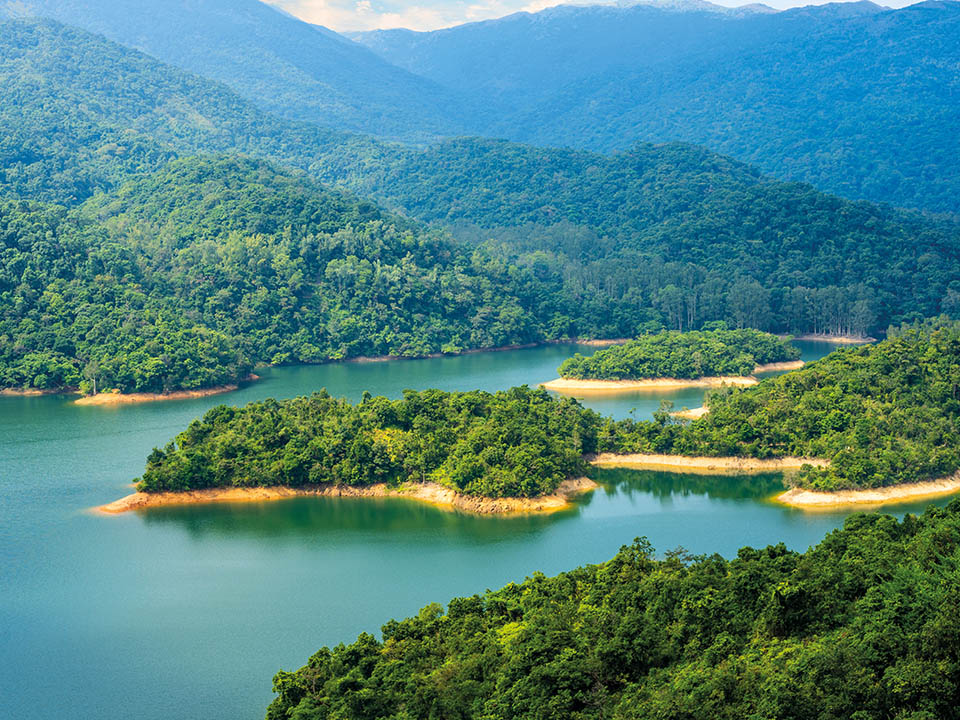


---3.jpg)
